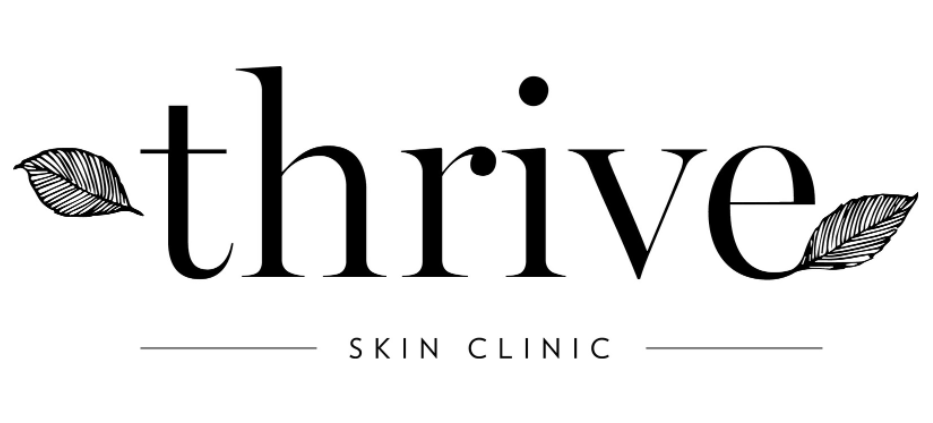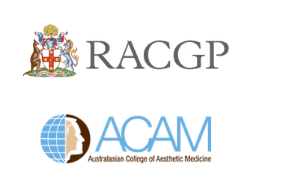Hormonal Havoc
/🌿 Skin tips with @drjeimimagrant 🌿
Hormones can have serious side effects for skin, but there are ways to care for your complexion and enhance overall wellbeing.
The link between hormonal changes, general health and our skin is significant, says Dr Jemima Grant, medical director MBBS (HONS) BSC (MED) BA FRACGP FACAM, whose passion for the topic was the foundation for creating Thrive Skin Clinic in Thirroul.
“I suffered from severe acne as a young adult, which caused a lot of social anxiety,” she says. “Unfortunately, the treatment (the pill) caused me to gain weight and exacerbated my anxiety. | then developed rosacea in my late 30s. Luckily, | am a geek, and through a lot of reading, trial and error and simple treatments I have improved my rosacea.”
What she discovered while on her own skin journey was that most doctors do not have the time to appreciate the holistic nature of hormonal health; some doctors dismiss the impact that skin issues, or the associated medication side effects, can have on self-esteem; and that hormonal issues are usually difficult to manage — they cannot be fixed with a simple prescription, or algorithm because it’s unique to each person.
These experiences formulated Dr Grant's perspective when treating skin conditions, Here, she outlines some common hormonal health issues that appear at different stages of life and how to treat them holistically.
✨ Acne
‘The most common skin issue for young adults is acne. Acne is worse in this time as it is driven by a rise of sex hormones (mostly testosterone), which stimulate oil production (sebaceous) glands. Sometimes the acne, especially in boys, can be very severe and cause scarring. Simple home care and lifestyle changes can help, but its important to see a doctor with an interest in the evidence-based treatment of acne if it does not settle in three months. If you have acne scarring, see the doctor straightaway because scarring can be irreversible.
✨ TIPS
🌿 Wash face daily with a bland cleanser, eg Cetaphil, QV.
🌿 Start with an over-the-counter treatment of benzyl peroxide. A lotion is less drying than a gel. If you have very sensitive skin, try azelaic acid instead.
🌿 If there is a lot of pimples, add in a physohex lotion from the chemist.
🌿 Wear a non-comedogenic suncream daily and a gentle moisturiser at night if you have dry skin.
🌿 Do NOT pick the skin or use a granular scrub,
🌿 If this does not settle, see a doctor to consider a medical grade tretinoin and /or topical antibiotics. Only use oral antibiotics if it is moderate to severe acne. And only fora short period.
🌿 Take an oral zinc supplement (with food), especially in young men, with studies suggesting 40 per cent are deficient: eat less trans-fat; reduce dairy consumption; eat organic meat (which has less hormones); low Gl diet and oily fish three times a week.
✨ Polycystic ovarian syndrome
There is a special subset of acne in young ‘women that is linked to a hormonal condition called Polycystic Ovarian Syndrome.The most ‘common age to diagnose this in the mid 20s- 30s. In general, females with the condition often have higher levels of circulating male hormones, and as such, tend to get more severe acne, suffer from hirsutism (excessive body hair), struggle with their weight and various hormonal issues such as high insulin. If you have severe or difficult to manage acne, it’s important to have a hormonal assessment with a doctor and investigate/exclude PCOS, before starting any other treatment. This is because, like all hormonal issues, it can impact your general health.
Management of PCOS is team-based, depending on the patient and where they are in life. That team involves a dermal therapist, a naturopath or dietitian, and sometimes an endocrinologist or gynaecologist.
✨ Melasma
Many women in coastal areas suffer from melasma, which is a hyperpigmentation disorder causing patches of pigmentation on the cheeks, and forehead. While the main driving factors of melasma are sun exposure and heat, tis also strongly influenced by hormonal factors, such as the oral contraceptive pill, pregnancy and perimenopause — the theory here is that fluctuating oestrogen levels drive the gene expression involved in the pigmentation pathway.
Melasma will often fluctuate throughout a ‘woman's life and patients need a good team around to them reassess what management options are safe and appropriate. Melasma patients need a lot of education and an individual plan. Lifestyle and medical options. are the best way to manage this condition, and an important take home message is — if you are struggling with pigmentation, see a doctor for advice. Moreover, if you have pigmentation or a darker skin type, please avoid any type of heat laser, unless you have been assessed by an expert.
Now that laser and IPL machines are on every comer, there has been an increase in pigmentation
issues caused by inappropriate treatment.
✨ Perimenopause
Perimenopause is the period of time before menopause, characterised by fluctuating levels of progesterone and oestrogen. For many, this can wreak havoc on skin — an exacerbation of melasma or rosacea due to fluctuating, and sometimes, very high levels of oestrogen, cyclical breakouts before periods due to low progesterone, and reduction in collagen, such as thin dry skin and laxity, are common. Stress and high levels of cortisol often preclude all of these hormonal issues and must be addressed
The best general advice for women in this time of life is to find a team (often starting with your own girlfriends) to support and guide you.
Addressing lifestyle changes, like reduction in alcohol, low Gl diet, exercise, 2 good sleep pattern and stress reduction are always the first step, and then talking with your health practitioners about your options.





